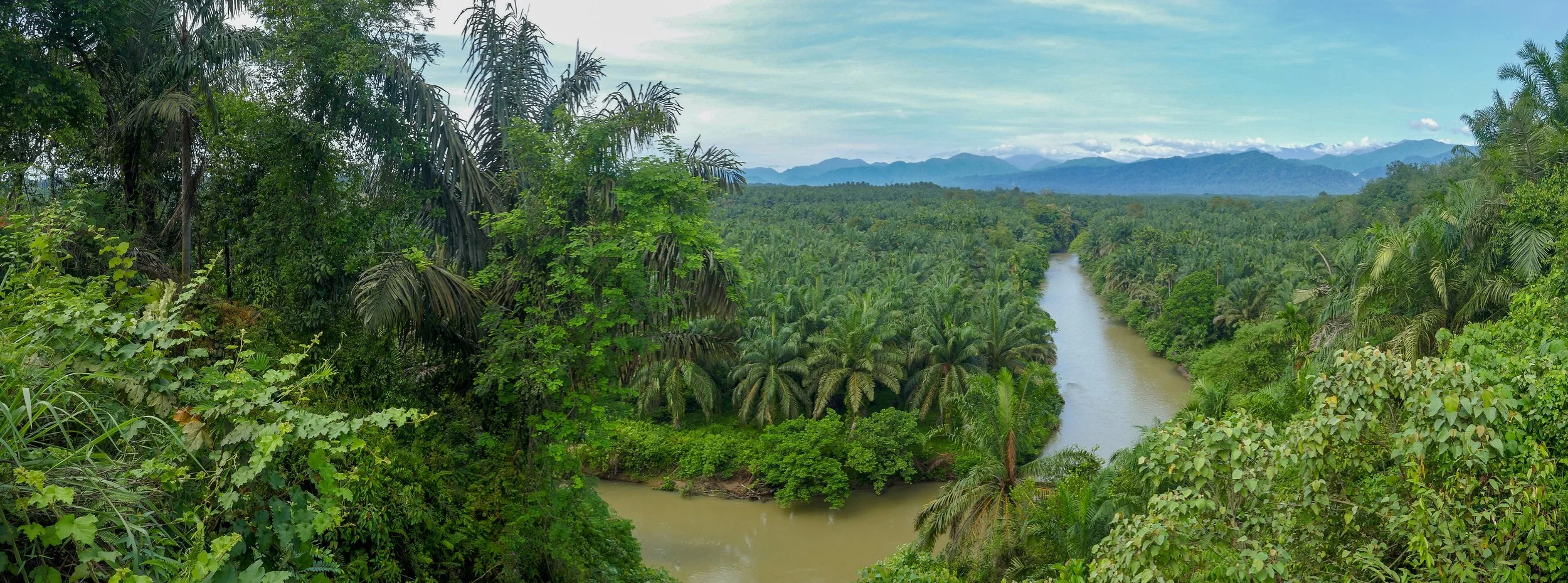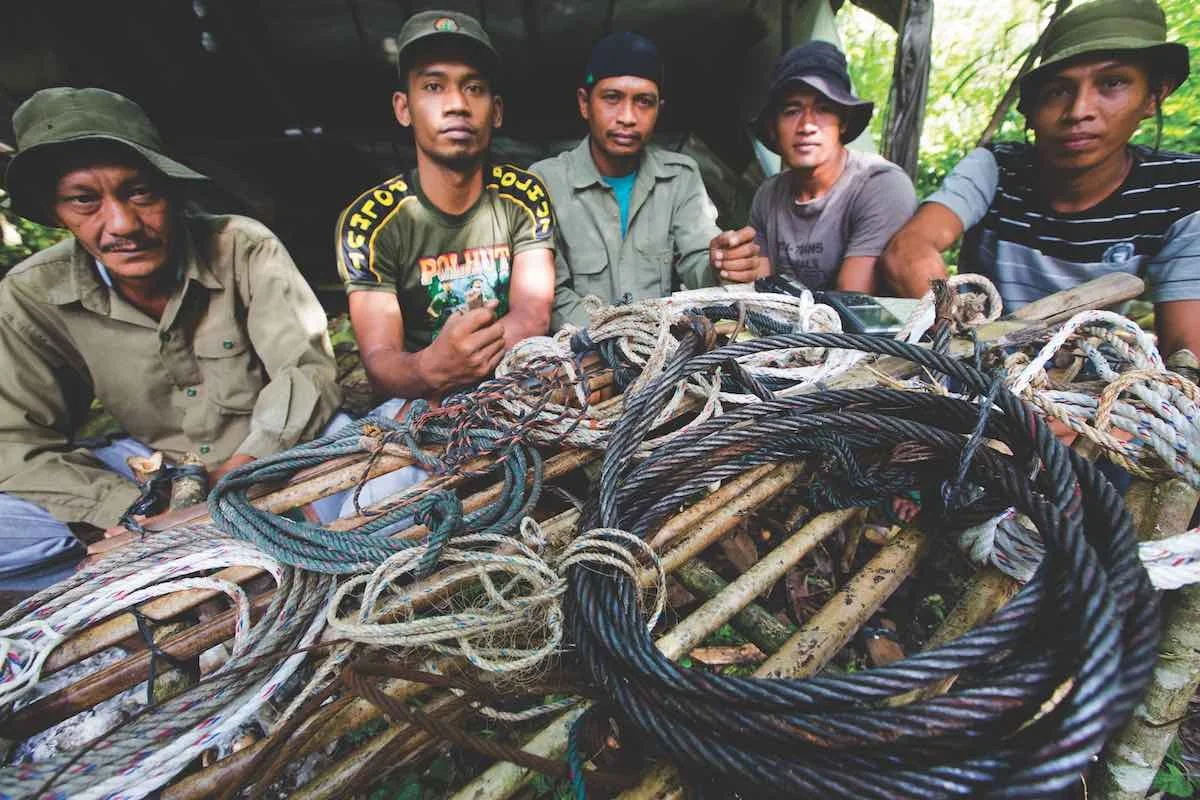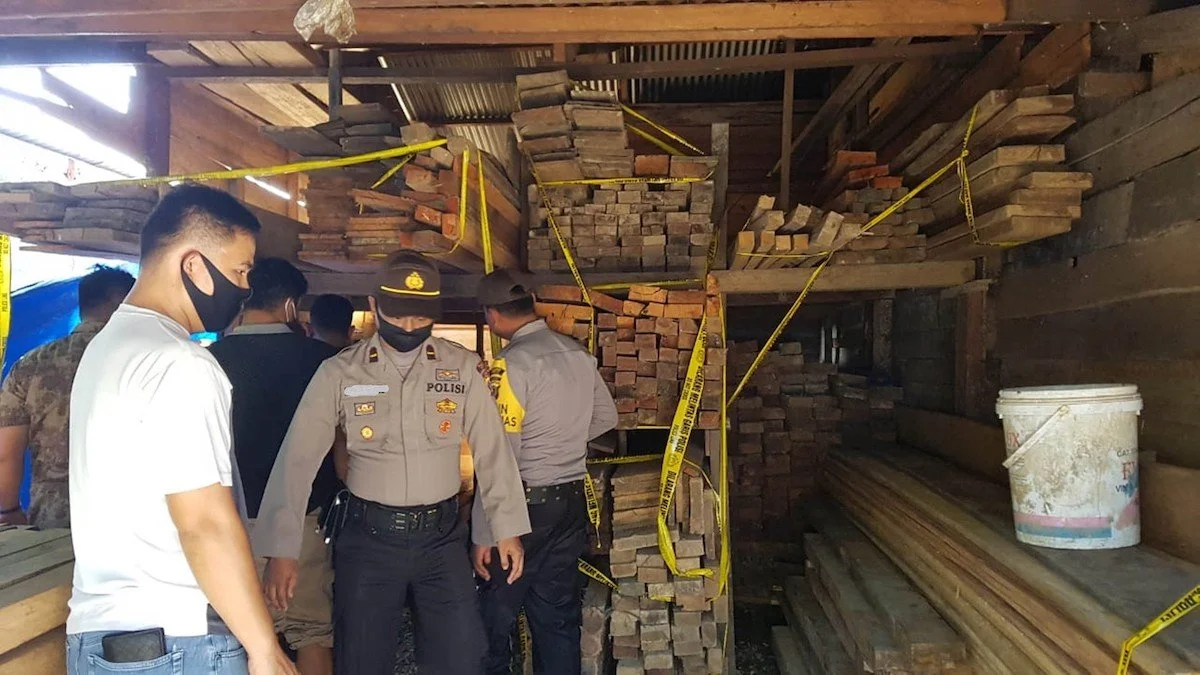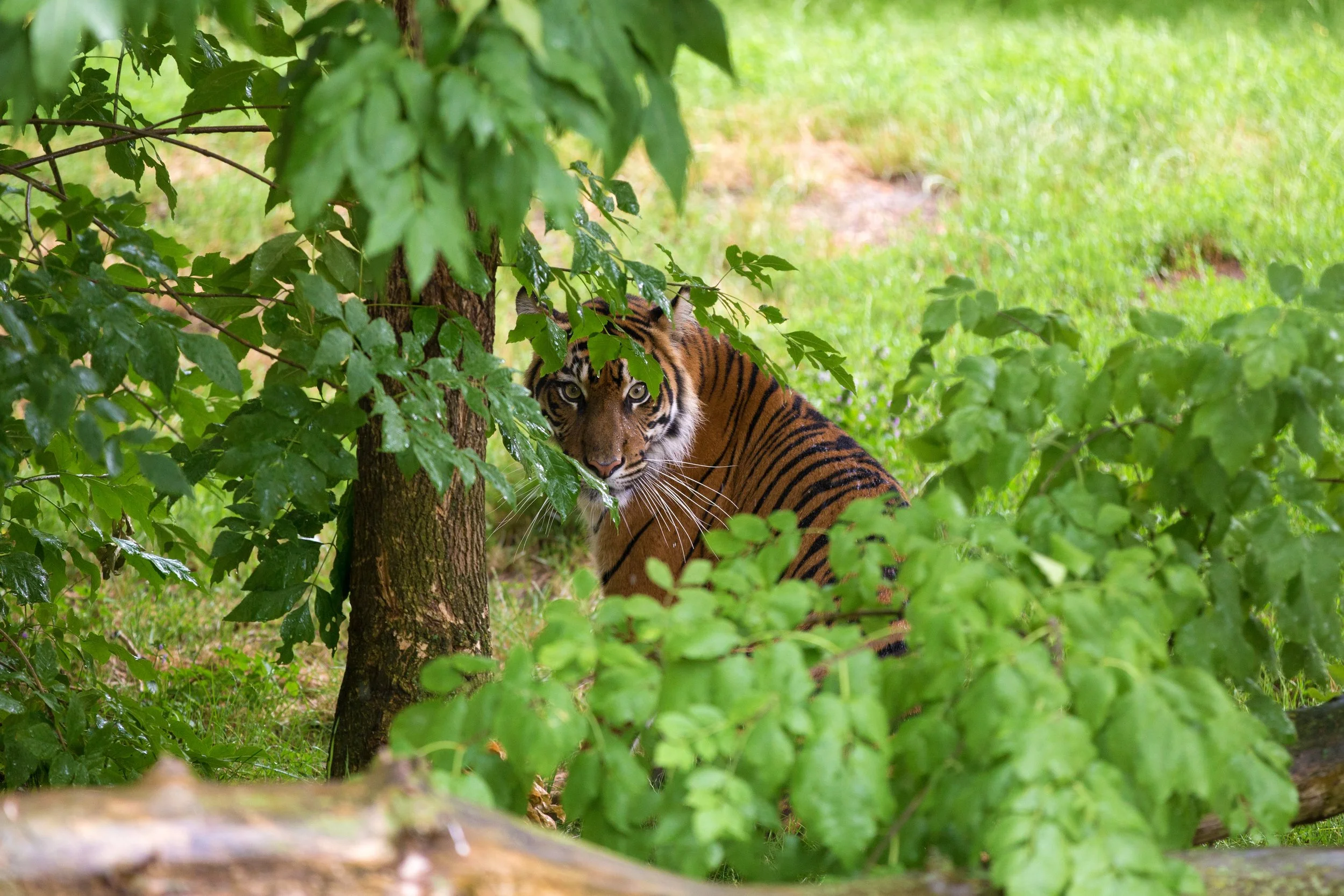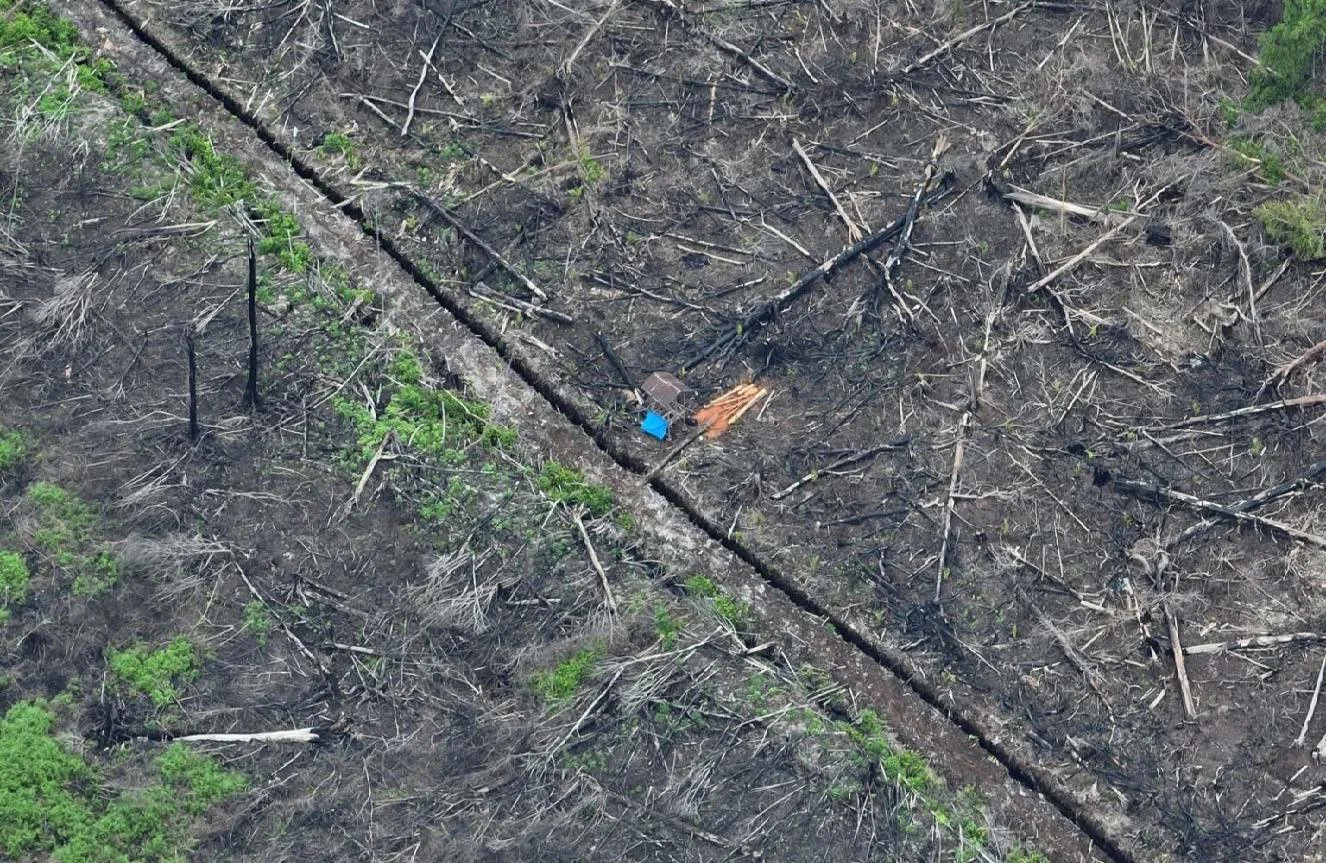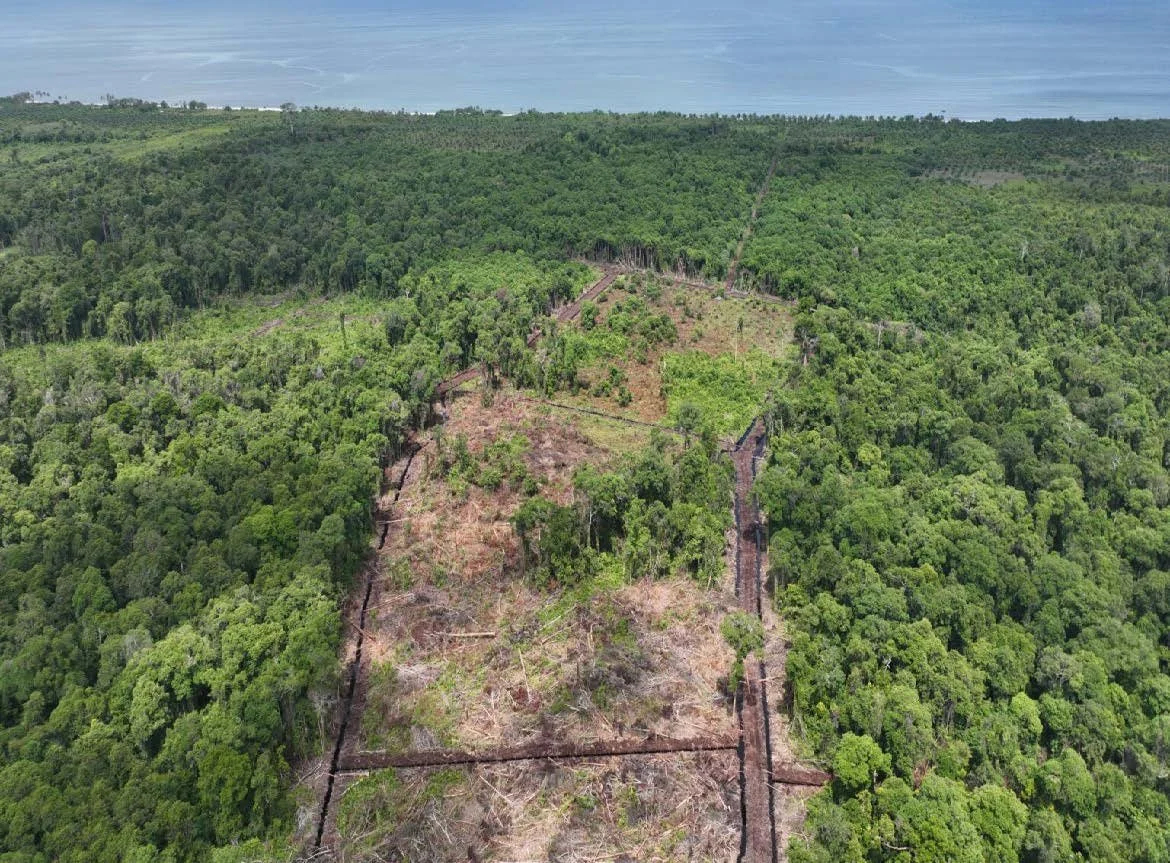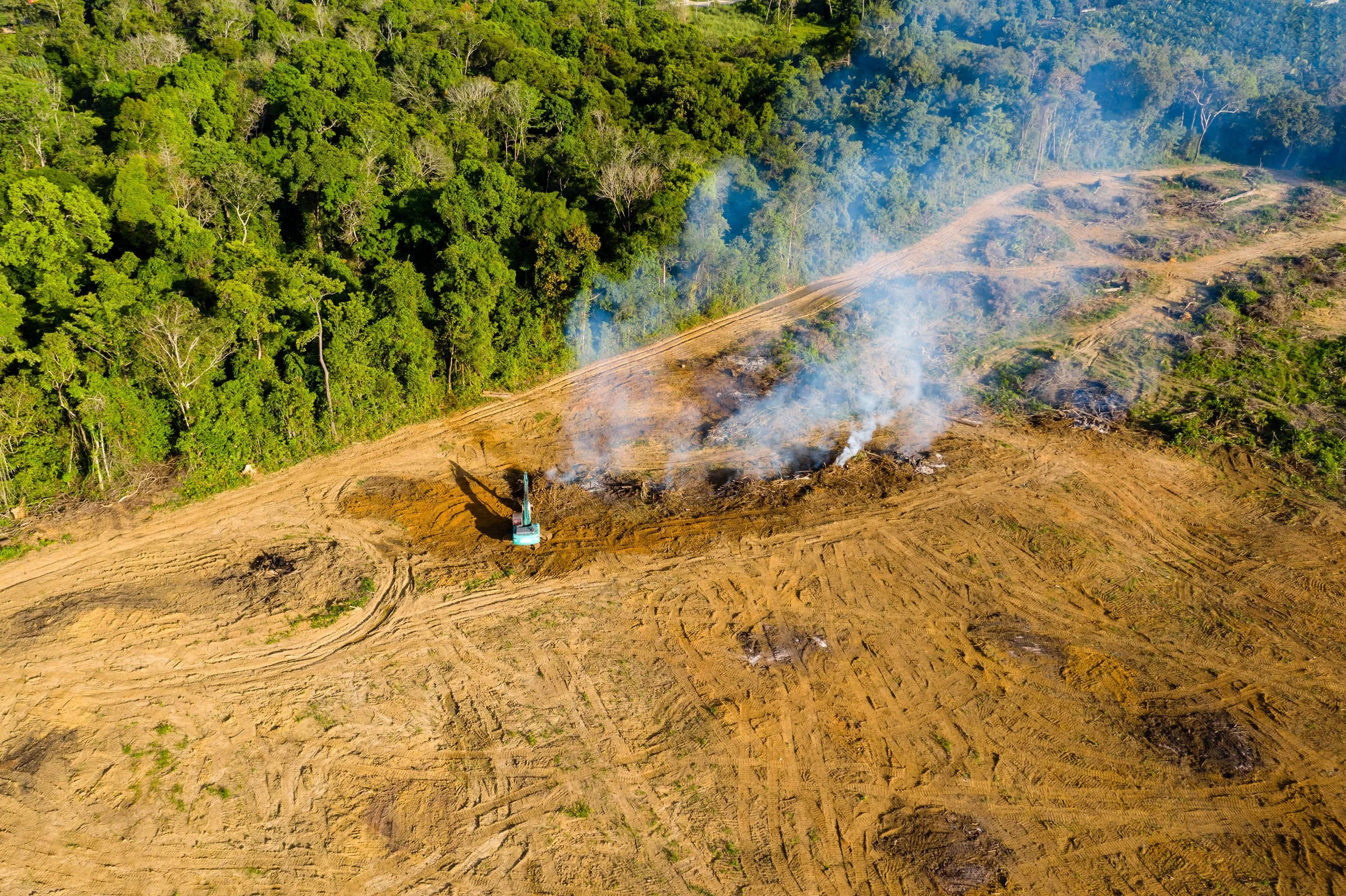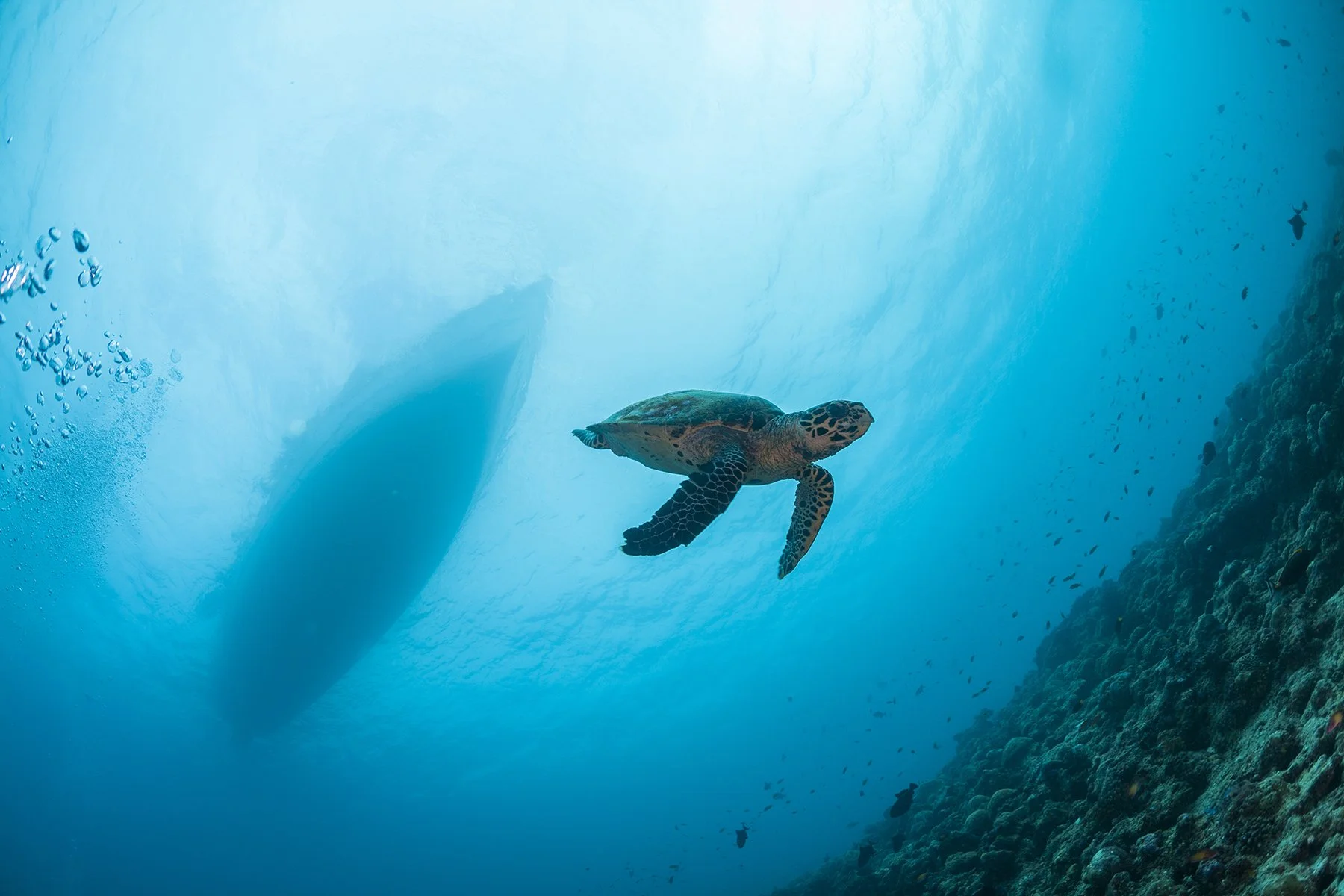Leuser Ecosystem, Indonesia—The 2024-25 Impact Report
The Leuser Ecosystem of Aceh, Indonesia, is one of Global Conservation’s most important National Park and Community Protection programs. Focused on the Bengkung Trumon Megafauna Sanctuary (BTMS), we are protecting over 1 million hectares of pristine tropical rainforests – the Last Place on Earth where tigers, rhinos, elephants, and orangutans coexist in the wild.
The ecosystem services provided by the Leuser Ecosystem, which include 1.6 billion tons of carbon storage and the provision of water to 4 million people, are valued at over $600 million annually.
GC has supported Forum Konservasi Leuser (FKL) for the past six years with eight FKL Wildlife Protection Teams who, in 2024-25, conducted 150+ patrol missions, covering 11,600 km over 2,680 days of patrolling dense, mountainous forests critical for the survival of the last Sumatran tigers (less than 400), rhinos (less than 80), elephants, and orangutans.
The community patrol team display the snare traps they’ve confiscated in the wild that surely would have killed many species. Photo ©Paul Hilton.
We made significant progress in safeguarding the biodiversity of the Bengkung Trumon Megafauna Sanctuary (BTMS), and in the past year, we encountered evidence 1,896 times of orangutans, 844 of Sumatran tigers, 1,182 of Malayan bears, and 221 of Sumatran elephants. These efforts also dismantled many snares and documented 35 wildlife poaching cases in 2024. Despite challenges in rising illegal logging (298 cases, confiscating 272.6 m³ of wood), proactive measures such as new guard post operations in Soraya and collaborative law enforcement initiatives have been implemented to counteract these threats.
In addition to protection efforts, restoration and community engagement have been key priorities to resolve challenges, including encroachment by former combatants and threats to conservation facilities. The Pasie Lembang Nursery produced over 5,700 saplings, of which 2,132 were distributed and planted across 21 hectares of previously degraded land. Wildlife sightings, including orangutans and Malayan bears, in these restored areas highlight the success of these initiatives.
The Suaq Community Patrol Team conducted five patrols, covering 893.2 km and documenting forest encroachment threats. These combined efforts underline FKL’s commitment to protecting the Leuser Ecosystem's biodiversity while promoting sustainable community practices.
In 2024, GC supported the Wildlife Protection Teams (WPTs), which completed 88 patrol missions over a span of 1,368 days, covering a total of 5,807 km along predetermined routes. One WPT specifically supported by Global Conservation was primarily focused on safeguarding the Rawa Kluet area. During this period, this particular team completed 11 patrol missions over 165 days, covering 709.92 km of predetermined routes.
Compared to 2023, the number of illegal logging cases doubled in 2024, and forest encroachment increased 11%, while wildlife poaching cases decreased to 60%.
Through the support of Global Conservation, FKL drone teams have completed a number of missions to map illegal logging camps and forest encroachment to share with local community leaders and law enforcement authorities, as well as oversee progress of our Kemuning (Aceh Timur) and Kaloy (Aceh Tamiang) restoration areas. The data acquired from these drone missions will be instrumental in assessing the progress and effectiveness of our restoration efforts. By providing a detailed snapshot of the restoration areas, this data will serve as invaluable comparative information, enabling us to monitor changes over time and evaluate the progress of each restoration site.
Sumatran Tiger Rescue
Early in the year, a Sumatran tiger was rescued and FKL constructed tiger-proof enclosures (TPE) aimed at preventing tigers from preying on the pets and livestock of the local residents.
A joint operation was launched to capture the tiger, involving the placement of box traps in strategic locations to ensure the safety of both the tiger and the residents while providing an opportunity for the rescue team to assess the tiger's health and monitor its condition before releasing it back into the wild.
After being deemed fit for release, the captured tiger made a journey to the release location requiring a 2-hour road trip followed by an additional 3 hours on a motorized boat and was successfully released into the Gunung Leuser National Park.
Restoring The Suaq Riverfront
Thanks to the support of Global Conservation, FKL continued reforestation of the Suaq forest block area in partnership with the local community. We have deployed five members dedicated to restoration activities, including managing the nursery post, distributing saplings, and patrolling the reforested area. Over 5,600 saplings are being nursed, consisting of 10 types of native trees.
Involving local communities in environmental protection is crucial for the sustainability of our conservation efforts. With GC support, the Suaq Community Patrol Team, consisting of eight local members, has continued its operations. During these patrols, they discovered wildlife and monitored forestry crimes.
Destruction of Rawa Singkil is seen from the air, along with an encampment.
Saving Rawa Singkil Wildlife Reserve in Leuser
In October 2025, Global Conservation received an exceptionally generous grant to protect the endangered Rawa Singkil Wildlife Reserve in the Leuser Ecosystem, one of the world’s last intact Peat Swamp Ecosystems, highest in carbon and biodiversity value—with some of the last Sumatran tigers remaining in the wild and over 5,000 endangered Sumatran orangutans.
After five years watching Singkil Wildlife Reserve lose over 5% of its rich peat forests as other NGOs looked the other way, GC partnered with Forum Koservation Leuser (FKL) and HAkA to assist the Indonesian Wildlife Authority to remove illegal land clearing in the protected wildlife reserve against the national constitution.
Global Conservation has worked in the Benkung Trumon Megafauna Sanctuary (BTMS) of the Leuser Ecosystem for over six years, virtually stopping illegal logging and deforestation and helping return entire valleys to their natural state.
By combining the efforts of GC, FKL, and HAkA, we can stop illegal deforestation and establish Rawa Singkil Wildlife Reserve as a shining model in Asia for protecting any endangered national park or wildlife reserve. This can be achieved by uniting effective NGOs with local communities and government Multi-Jurisdictional Teams (MJTs) to combat large-scale illegal invasions and corrupt land speculation.
In 2025, satellite evidence shows 652 hectares of new illegal oil palm plantations inside Rawa Singkil Wildlife Reserve, with 453 hectares already in production as of September 2024. The destruction of large forest areas in Singkil is happening now, and it likely has the involvement of corrupt government officials. Almost 5% of the wildlife reserve has already undergone clearing, despite the absence of any residents.
Further clearing must be halted under Indonesian Law, as there are many precedents in Aceh and the Leuser Ecosystem demonstrating successful forest and wildlife protection achieved through the combined efforts of FKL and HAkA deploying Global Park Defense and Community Protection. Our work to remove illegal loggers and palm oil plantations enabled natural restoration and reforestation to heal previously lost tropical forests.
In a major new campaign over the next five years, Global Conservation will fund protection and tourism in Rawa Singkil Wildlife Reserve with four new ranger stations, hire 28 wildlife and forest protectors, and begin community dialogues to reduce illegal activities.
The urgency of habitat loss, biodiversity destruction, and subsequent ecosystem failure of the Rawa Singkil Wildlife Reserve of the Leuser Ecosystem is already critical.
The government’s BKSDA team has been actively engaged in several initiatives to curb illegal activities within the wildlife reserve. These initial activities include installing signs and banners along the boundaries of the reserve to clearly demarcate protected areas and inform the public about the restrictions. Socialization efforts have been conducted in several villages bordering the wildlife reserve, aiming to educate local communities about the importance of preserving the reserve and adhering to environmental regulations for the sake of preserving the healthy ecosystem services in their area.
Singkil’s protection will be a model example of how any developing country can stop illegal deforestation in their national parks and wildlife reserves using Multi-Jurisdictional Teams (MJTs) and a concerted Global Park Defense and Community Protection program.

